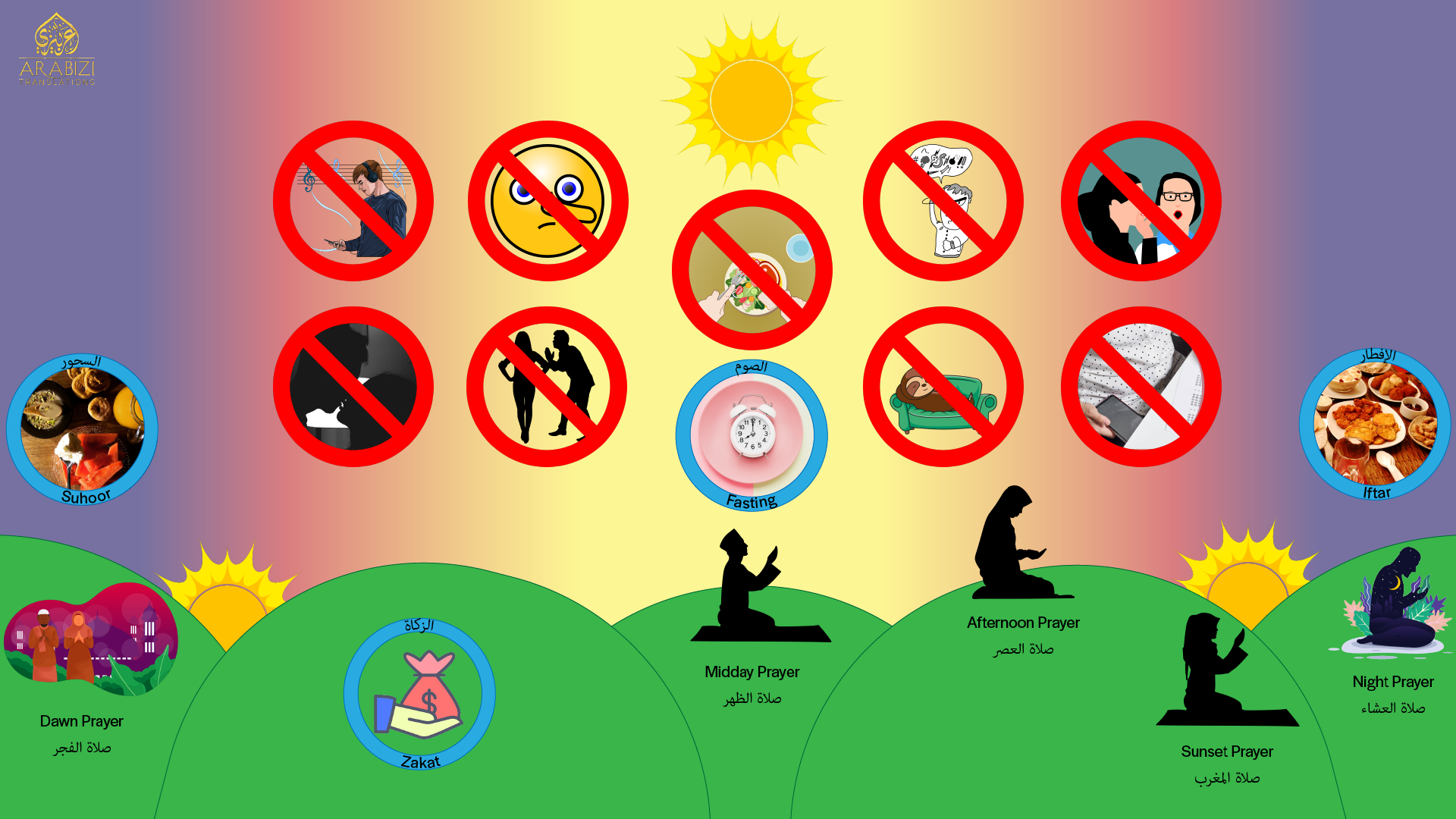Infographic Fun: What do Muslims do during Ramadan?
Most people know that Muslims fast during Ramadan from sunrise to sunset, but Ramadan is so much more than just fasting—it’s really about self-discipline and spiritual reflection. So, I decided to depict all the things Muslims are concerned with during Ramadan, though I probably missed some things. Please make sure to read the list below because I didn’t label the don’ts (it would’ve cluttered the image)
Everything depends on a location’s sun exposure. So, here in Maryland, we currently have about 13 hours of sunlight. And the Islamic calendar is a lunar one, which means that Ramadan shifts around year-to-year; sometimes it’s in the middle of the summer 😳
Suhoor and Iftar: these are the two meals Muslim eat—suhoor is eaten before the sun rises and iftar is eaten after the sun sets. Mosques usually provide communal iftars for the needy or just to celebrate with the community.
The five prayers: Muslims pray five times a day all year round, but Ramadan is a sacred time and allows for deeper reflection. Mosques hold nightly prayers called tarawih after iftar.
Fasting: Healthy adult Muslims are expected to abstain from eating or drinking as long as the sun is up. Those who have health conditions that would make it dangerous for them to fast are excused, including those who are pregnant or menstruating. People who had temporary health conditions that prevented them from fasting usually try to make it up later before the next Ramadan.
Bad behavior: Ramadan is about self-discipline and spiritual reflection, so this means trying to break bad habits and exercising good behavior. This means no cheating, lying, arguing, gossiping, swearing, wasting time, etc. Smoking and drinking alcohol are usually considered forbidden, but during Ramadan, people are encouraged to quit.
Listening to music: Now, I’ve found a range of views on the acceptability of Muslims listening to music—some scholars say it’s forbidden, some say it’s permissible. During Ramadan, the best practice is not listening to loud music (using your headphones) and not listening to music with obscenities, as a courtesy to those who wish to abstain from listening to any music.
Intimate relations: Muslims practice celibacy during the day, but like eating and drinking, intimate relations are permissible at night.
Zakat: Muslims donate money as one of the five pillars of Islam, and during Ramadan, Muslims are expected to donate 2.5% of their assets and then donate another (smaller) amount before Eid al-Fitr (before Ramadan ends).

